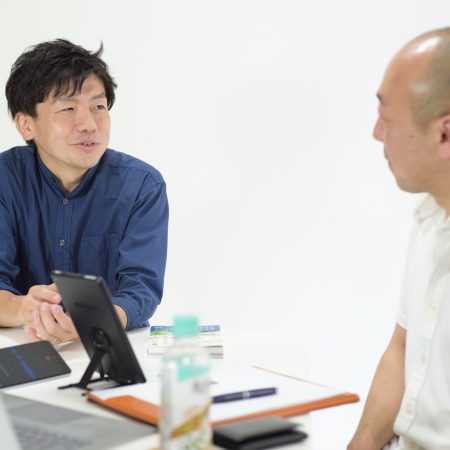SPECIAL
Japanese EdTech startups rapidly growing
Have you ever heard of the word EdTech? EdTech is a combined word of education and technology, and is a general term for businesses, services, start-up companies, etc. which brings technological innovation by incorporating technology into the education field.
The area of EdTech is very wide. It includes ICT, e-learining, and MOOC and it comes with the form of apps and services that are used at schools and cram schools, and online services where you can take classes anytime, anywhere, at home or on the go. In addition, IT technology has been introduced not only for learning, but also as tools for school and cram school teachers to grasp and manage the learning status of their students.
In Japan, EdTech is still at the beginning of the development, but the market size is steadily expanding. Nomura Research Institute (NRI) estimates that the EdTech market size in fiscal 2016 was approximately 170 billion yen, and is projected to reach approximately 300 billion yen in 2023.
The reason why EdTech is attracting attention in Japan is that the Ministry of Education, Culture, Sports, Science and Technology announced a guideline to distribute individual tablet terminals in all elementary and junior high schools. Furthermore, the Ministry of Economy, Trade and Industry has been promoting EdTech by launching “Future Classroom” and the “EdTech Study Group” since January 2018. These movements are not limited to public education, but to corporate training and individual learning.
The word EdTech has come into the limelight due to the effects of Covid-19. As schools were closed and it has become difficult to conduct face-to-face lessons, technology-based education such as distance learning via video chat is attracting attention.
Thus, EdTech companies are growing rapidly in Japan amid Covid-19 pandemic and attracting investors. Among many, I would like to introduce 2 notable Japanese EdTech startups which implement adaptive learning.
Adaptive Learning

“Adaptive learning” is to realize more efficient and effective learning by providing optimized learning content to each learner.
In the demonstration project “Future Classroom” of the Ministry of Economy, Trade and Industry, which started in 2018, “independence of learning and individual optimization” was set as one of the three pillars, thus attention to adaptive learning has increased in Japan.
SuRaLa Net Co. Ltd.
SuRaLa Net’s mission is “Eliminating educational inequality”.
SuRaLa Net states in their mission statement “ Educational inequality creates income inequality, and that income inequality creates further education inequality. Our mission is to solve this negative spiral with e-learning that can provide high quality education at low cost.”
With this mission, SuRaLa Net has been developing business through providing interactive animation teaching materials called “SuRaLa”
“SuRaLa” is an interactive adaptive ICT teaching material which can be adjusted according to each student’s understanding level together with the animation character who plays the role of a teacher. Different characters appear for each subject, providing teaching material content tailored to each student and managing the learning situation.
SuRaLa are used in schools and cram schools as well as by individuals.
From April 2019, “SuRaLa” was introduced at Kadokawa Dwango Gakuen N High School.
SuRaLa Net is also working for elimination of education inequality in Asian countries by spreading AI based e-learning materials. They have opened cram schools in Shanghai, Sri Lanka and Bangkok. In 2020, SuRaLa was adopted by the Ministry of Economy, Trade and Industry / JETRO’s “Future Classroom” overseas expansion support project in Indonesia and the Philippines.
Main History of SuRaLa Net
2012:
- Received “Minister of Education, Culture, Sports, Science and Technology Award ” at the e-Learning Award Forum
2015
- Installed as a member of the Expert Committee of the Education Rebuilding Implementation Council under Japanese Cabinet
2017:
- Listed at the Mothers section of Tokyo Stock Exchange
- Received the Social Contribution Award at Japan entrepreneurs ranking of Forbes Japan
2018
- Certified as “ J-Startup Company” by the Japanese Government
2019
- Selected as demonstration project of t “Future Classroom” of the Ministry of Economy, Trade and Industry.
Company Overview
Establishment;August 29, 2008
CEO:Founder & Chief Executive Officer Takahiko Yunokawa
Capitals:289,657,000yen(March 2021)
Market Capitalization:13,276million year Dec, 2020)
Turnover:1,649million yen( Dec.2020)
Operating Profits:540 million yen ( Dec. 2020)
Total Assets:1,780 million yen (Dec. 2020)
No of employees:42
URL: https://surala.jp
COMPASS Inc.
COMPASS Inc. is a company that develops “Qubena” which is an artificial intelligence type tablet teaching materials.
Artificial intelligence analyzes the strengths and weaknesses of children and extracts problems tailored to each individual.
AI analyzes habits of mistakes and solutions that differ from child to child, and guides them to appropriate exercises. It is also excellent in letter and figure recognition, and it is devised to use it for writing on a tablet with a pen like a real notebook, or for using a compass or a ruler for answering. One seminar can be completed in two weeks and students can study in a higher grade than their own.
Qubena has more than 200,000 users from more than 750 public and private elementary, junior high and high schools nationwide. (September 2020)
Main History of COMPASS Inc.
- 2018 and 2019 selected as demonstration project for “Future Classroom” of the Ministry of Economy, Trade and Industry.
- 2018:received Minister of Economy, Trade and Industry Award at Japan e-learning Grand Prize
- 2018: Received “Good Design award”.
- 2018:The introduction of Qubena to Kojimachi Junior High School attracted a lot of attention as a major success story which is led to be introduced to other schools one after another.
Company Overview
CEO:Masaki Ogawa
Establishment:December 25, 2012
Capital: 929 million yen
No. of employees:41
URL:https://qubena.com/
Japanese EdTech startups rapidly growing

There are numerous Japanese EdTech startups as EdTech is one area rapidly growing in Japan at the time of Covid-19 and also it is expected to grow much further. I chose 2 companies which are more relevant for global development. The Japanese EdTech startups are not big as US EdTech companies but their business model based on the Japanese education style could be more relevant for Asian countries. It is one of the business area worth paying attention for its development.








